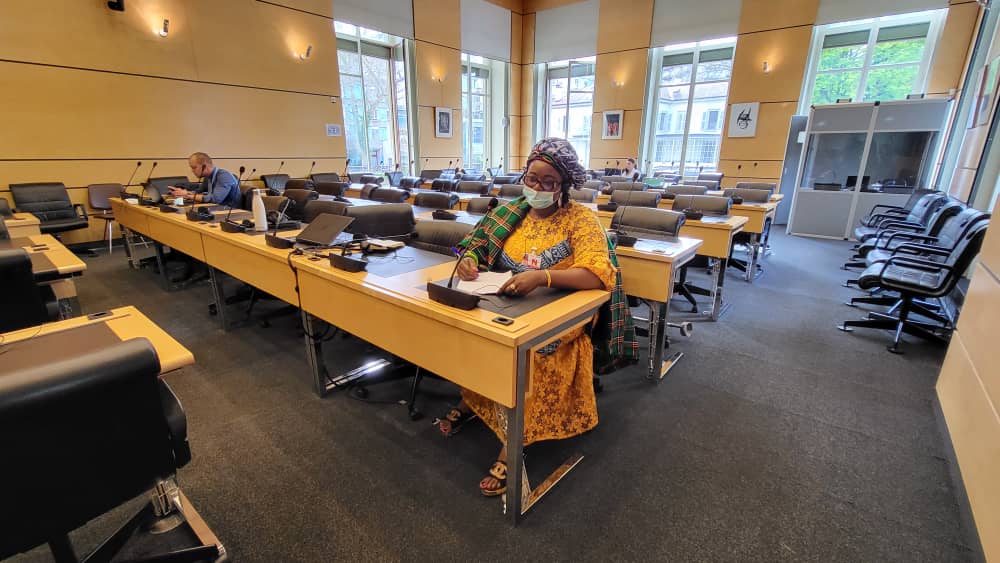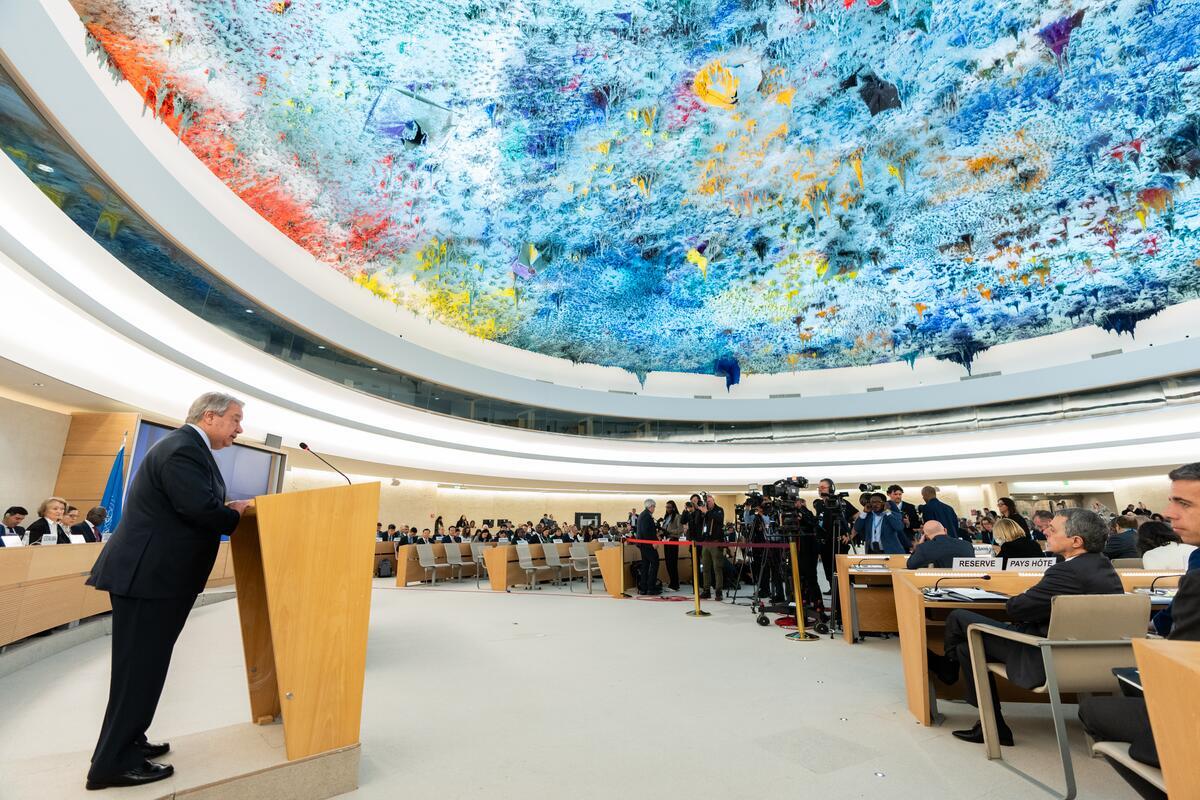As a State Party to the Convention on the Elimination of All Forms of Racial Discrimination (CERD), Cameroon is subject to regular reviews addressing its implementation of the Convention. On 13-14 April 2022, Cameroon’s record on racial and ethnic discrimination issues came under review by the UN Committee.
Given the ongoing Anglophone crisis and conflict since 2016, members of the Committee and civil society organisations gave particular attention to the discriminations and human rights violations happening in the North and South West regions of the country.
During the review, Nicoline Nwenushi Wazeh delivered a statement on behalf of the Cameroon Women’s Peace Movement (CAWOPEM) and ISHR, following up on the shadow report submitted in 2020. Our organisations are convinced that for the crisis to end and to properly combat racial discrimination, Cameroon must give due consideration to the bilingual and bijural systems of Cameroon, to its multi ethnicity and open its civic space for human rights defenders and other civil society actors.
Committee Members echoed our concerns and recommendations in their questions and oral conclusions, notably devoting significant attention to the situation of human rights defenders. The Committee Expert and Country Rapporteur for Cameroon Stamatia Stavrinaki asked how the State party could encourage civil society organizations to help in the implementation of the Convention and expressed concerns over threats and attacks on defenders. The Committee Expert and Co-Rapporteur Bakari Diaby cited African countries that had adopted specific laws on the protection of human rights defenders and called on Cameroon to follow suit, while suggesting that civil society could assist with drafting such a law.
The Cameroonian delegation admitted being unclear as to who defenders are and asked the Committee to support Cameroon in the adoption of a protective framework.
Committee Members also addressed other concerns raised in our shadow report. Ms. Stavrinaki underlined the worrisome lack of mapping of ethnic composition in the census. She also clarified that it is important for the appeasement of the conflict that independent and impartial inquiries are conducted. Additionally, the official policy and the commission of bilingualism must both be strengthened, with clear benchmarks and deadlines for effective monitoring and evaluation. Other remarks by Committee Members recommended to ensure that deep-rooted and long-standing Anglophone grievances are genuinely addressed and ensure the rights of minority groups, women, migrants, indigenous people are protected at all times, especially in times of conflict.
ISHR welcomes both oral recommendations made by Committee members for the adoption of a law and a mechanism protecting human rights defenders and the positive attitude of Cameroonian representatives towards this suggestion. A strong legal protection for human rights defenders, with due consideration to the special needs of women human rights defenders, is an undeniable precondition to promote inclusion, diversity, tolerance and unity.
Watch the review of Cameroon by the CERD Committee here: Part 1 and Part 2.




